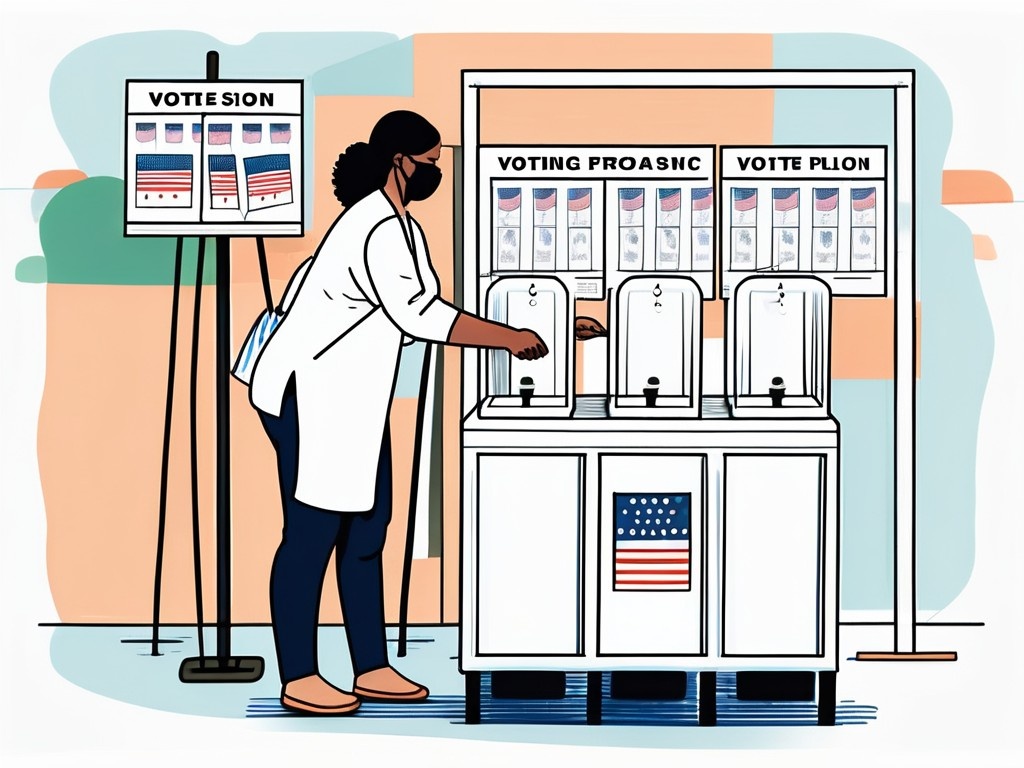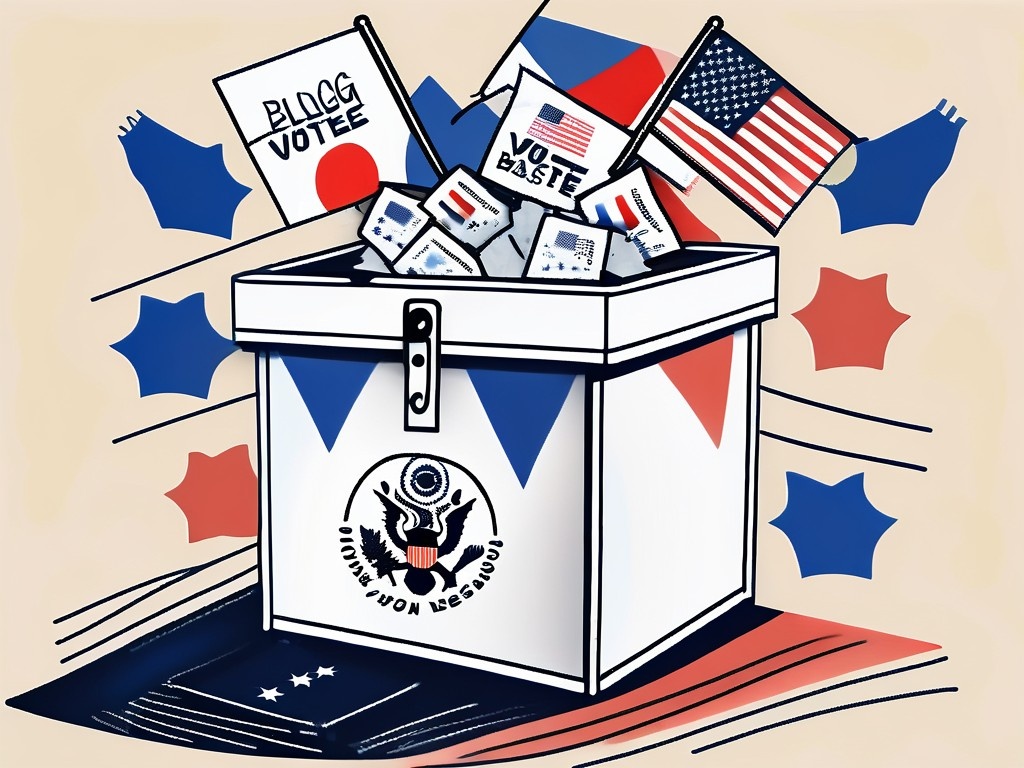Navigating the voting process can be particularly challenging for non-English speakers in New Jersey. With an increasing number of residents whose primary language is not English, it is important to understand how to effectively participate in the democratic process. This guide will walk you through the key steps necessary to successfully navigate voting in New Jersey, ensuring that language barriers do not deter you from exercising your rights.
Understanding the Voting Process in New Jersey
The voting process in New Jersey is governed by state laws and regulations that outline how voters can cast their ballots. It is essential for non-English speakers to grasp the fundamentals of this process to ensure their voices are heard.

Firstly, understanding the voter registration process is crucial. Voters need to register before they can participate in elections, and this can often be done online, by mail, or in person. Moreover, recognizing important dates, such as registration deadlines and election days, can significantly simplify your voting experience. New Jersey also provides resources in multiple languages to assist non-English speakers in navigating the registration process, ensuring that language barriers do not prevent participation.
Importance of Voting as a Non-English Speaker
Voting is a fundamental right in a democratic society, and every voice matters. For non-English speakers, participating in elections is vital to ensuring that their specific needs and concerns are represented. Moreover, voting empowers individuals to advocate for policies that affect their communities, contributing to a more inclusive society. Engaging in the electoral process not only allows non-English speakers to express their opinions but also fosters a sense of belonging and community involvement, reinforcing the idea that every citizen has a stake in the democratic process.
Additionally, when non-English speakers engage in the voting process, they help educate political candidates and parties about the diverse populations they represent. This engagement can encourage more equitable policies and services that cater to a broader audience. By voting, individuals can highlight issues such as access to education, healthcare, and public services that may disproportionately affect non-English speaking communities, thereby prompting candidates to address these critical concerns in their platforms.
Basic Terminology in the Voting Process
Familiarizing yourself with basic voting terminology can significantly ease the voting process. Some essential terms include:
- Ballot: A document used to cast a vote, allowing voters to select their preferred candidate or option.
- Polling Place: The designated location where voters go to cast their ballot.
- Election Day: The official day on which elections are held.
- Absentee Ballot: A voting method that allows someone to mail or submit their vote remotely rather than attending a polling place in person.
Gaining a grasp of these terms can help non-English speakers feel more confident when engaging with the voting process. Moreover, understanding the voting process can also involve recognizing the significance of local elections, which often directly impact community resources and services. Local officials make decisions on education funding, public safety, and infrastructure, making it imperative for all community members, including non-English speakers, to participate and voice their preferences through their votes.
Preparing for the Voting Day
Preparation is key to successfully casting your vote. Understanding the steps you need to take well in advance of Election Day can alleviate stress and improve the overall experience.
Registering to Vote in New Jersey
To vote in New Jersey, you must be registered. The registration process can vary depending on the individual’s circumstances, but it generally involves filling out a voter registration form and submitting it to the appropriate county office. Non-English speakers can find registration forms available in multiple languages.
It is advisable to check your registration status online to confirm that your information is current. If you need assistance with completing the form in English, consider reaching out to local advocacy groups that assist voters. These organizations often provide valuable resources, including workshops and one-on-one support, to help ensure that everyone has the opportunity to participate in the electoral process. Additionally, be mindful of registration deadlines, as they can vary for different elections, and missing them could prevent you from voting.
Identifying Your Polling Place
Once registered, it is important to know where to go on Election Day. Each registered voter is assigned a specific polling place based on their residential address. You can find your polling location by visiting the New Jersey Division of Elections website or contacting your local election office.
Many polling places are equipped with accessibility options, ensuring that every voter, including those with language barriers, can successfully exercise their rights. Familiarize yourself with the location by visiting it beforehand or using mapping tools to plan your journey. It’s also a good idea to check the hours of operation for your polling place, as they may differ from one location to another. Some voters might consider going during off-peak hours to avoid long lines, which can be especially helpful if you have a tight schedule on Election Day. Furthermore, knowing what to expect in terms of voting equipment and procedures can help ease any anxiety you might feel about the process.
Voting Assistance for Non-English Speakers
New Jersey has several provisions to assist non-English speakers during the voting process. Knowing what resources are available can enhance your voting experience.

Language Assistance Provisions in New Jersey
The state of New Jersey provides language assistance through various means, such as bilingual ballots and assistance from poll workers who are fluent in multiple languages. This support aims to bridge the gap for non-English speakers and ensure they can participate fully in the voting process.
Additionally, local community organizations may offer help by connecting non-English speakers with trained volunteers to guide them through the voting experience. These organizations often conduct outreach programs that inform non-English speaking communities about their voting rights and the resources available to them, fostering a sense of empowerment and participation in the democratic process. They may also provide educational workshops that explain the voting process, including how to fill out ballots and understand the candidates and issues on the ballot.
Using a Translator or Interpreter
If needed, non-English speakers can bring a family member or friend to serve as a translator or interpreter at their polling place. You also have the right to request interpreter services from polling officials at the location.
Using a translator or interpreter can significantly ease communication and ensure that you understand the voting options available to you. It is important to note that having someone assist you does not compromise the confidentiality of your vote; you can still cast your ballot in private. Furthermore, many polling places are equipped with technology that can facilitate communication, such as translation apps or devices that can help bridge language barriers, making the voting experience more accessible for everyone involved.
Absentee Voting and Early Voting
For those who may not make it to the polls on Election Day, New Jersey offers options like absentee and early voting. These alternatives provide flexibility and can be especially beneficial for non-English speakers.
Understanding Absentee Voting
Absentee voting allows voters to cast their ballots without physically attending the polling place. This can be done by requesting an absentee ballot online, by mail, or in-person at your county clerk’s office. It’s an excellent option for those facing language barriers as it gives them more control over when and how they vote.
Remember to check the deadlines for requesting an absentee ballot and ensure you return it in time for it to be counted. Additionally, voters can often find resources in multiple languages that explain the absentee voting process, making it easier for non-English speakers to navigate the system. Local community organizations frequently host workshops or provide assistance to help individuals understand how to fill out their ballots correctly, ensuring that every vote counts.
The Process of Early Voting
Early voting is another option that New Jersey provides to accommodate voters. This allows individuals to vote before the official Election Day, often at designated locations that may be more familiar to them.
Early voting can help alleviate the stress that comes with the crowds and possible language barriers on Election Day, allowing for a more peaceful and focused voting experience. During the early voting period, polling places may offer extended hours, which can be particularly advantageous for those with demanding work schedules or family commitments. Moreover, early voting locations are often equipped with multilingual staff and resources, ensuring that all voters, regardless of their primary language, can receive assistance and feel confident in their voting choices.
Overcoming Challenges Faced by Non-English Speakers
Despite the provisions available, non-English speakers may still encounter unique challenges when voting. Identifying these hurdles is the first step toward overcoming them.

Dealing with Language Barriers
Language barriers can create significant obstacles for non-English speakers. However, being proactive and seeking resources and assistance can help mitigate these issues. Engaging with local advocacy groups or community organizations that focus on electoral assistance can provide vital support.
Additionally, practicing the voting process ahead of time, such as familiarizing oneself with sample ballots and terminology, can enhance confidence and ease concerns on Election Day.
Navigating the Voting System
Understanding the voting system—its rules, regulations, and available assistance—empowers non-English speakers to participate fully in democracy. Building connections with community leaders and participating in civic education programs can also play a vital role in enhancing one’s ability to navigate the process.
Ultimately, by being informed and utilizing the available resources, non-English speakers in New Jersey can confidently engage in the voting process, ensuring their voices are heard and represented.















